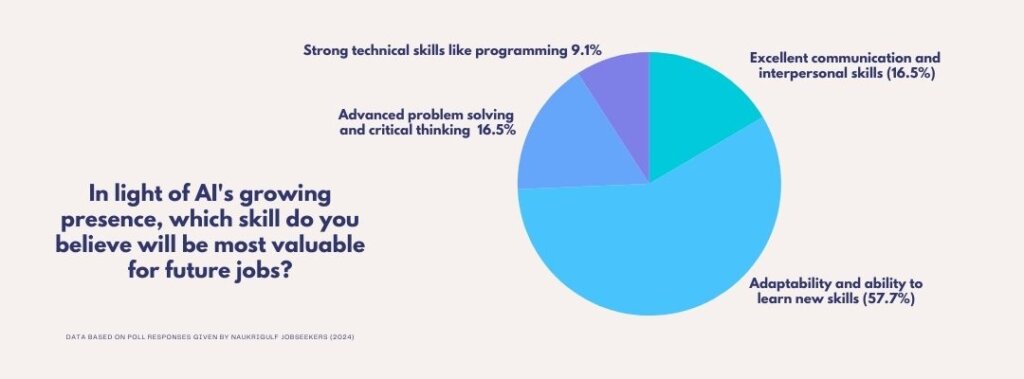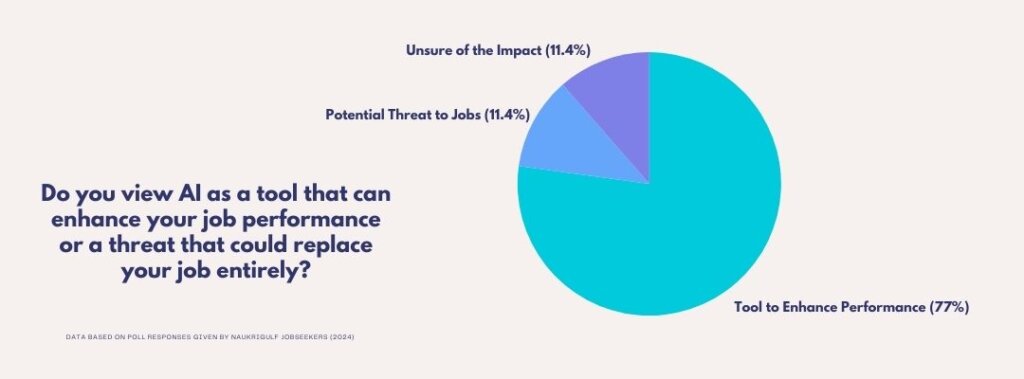
The Future of Talent Acquisition: How AI is Reshaping What You Look For
Soft Skills Reign Supreme
Forget the myth of the tech-obsessed employee. The survey shows a clear preference for well-rounded individuals: a whopping 57.7% of respondents believe adaptability and the ability to learn new skills are the most crucial assets. This underscores the importance of continuous learning. As AI automates routine tasks, human workers will need to excel in areas where machines struggle: complex problem-solving, creativity, and social intelligence.
Communication: Building Bridges with Your New AI Colleagues
While technical skills like programming have some value (9.1%), the survey emphasizes the enduring importance of excellent communication and interpersonal skills (16.5%). The ability to collaborate effectively with a diverse team – human and potentially AI-powered colleagues – and clearly explain complex ideas becomes even more crucial. Imagine a world where your team needs to not only connect with each other but also bridge the gap between humans and AI systems!
How to Find Your AI-Ready All-Stars:
- Go Beyond the Resume: Resumes are just a snapshot. Look for candidates who demonstrate a willingness to learn and adapt through their cover letter, online presence, or portfolio. During interviews, assess their comfort with change and their ability to learn new things quickly. Ask questions like:
- "Tell me about a time you had to learn a new skill quickly, and how you approached the challenge."
- "How do you stay up-to-date on industry trends?"
- Prioritize Strong Communicators:
Evaluate a candidate's communication skills throughout the interview process. Can they articulate their ideas clearly and concisely, both verbally and in writing? Can they actively listen and understand diverse perspectives? Consider incorporating group exercises or presentations into the interview process to assess these skills firsthand.
- Become a Learning Destination:
Showcase your company's commitment to continuous learning and upskilling initiatives in your job postings and on your careers page. This will be incredibly attractive to candidates who value professional development and see themselves thriving in a dynamic environment.
Partnering with Your New Hires:
- Invest in Mentorship Programs: Pair experienced AI talent with newcomers to foster knowledge sharing and build confidence. This can be a formal program or a more casual buddy system.
- Upskilling Initiatives: Provide access to online courses, workshops, or internal training programs to help employees develop their AI expertise. Partner with educational institutions or online learning platforms to offer relevant and up-to-date training opportunities.
- Focus on a Growth Mindset: Cultivate a company culture that values continuous learning and experimentation. Encourage employees to take risks, learn from failures, and embrace new challenges.
The AI Advantage
The positive perception of AI as a tool to enhance job performance (77%) is encouraging. This suggests a general understanding that AI can automate mundane tasks, freeing up human workers for more strategic and creative endeavors. This shift has the potential to increase productivity and innovation across industries.
The AI age demands a new approach to talent acquisition. By prioritizing adaptability, strong communication, and a commitment to lifelong learning, you can find the talent to thrive alongside AI, not be replaced by it. Remember, the future belongs to those who can work in harmony with AI to achieve shared goals.





